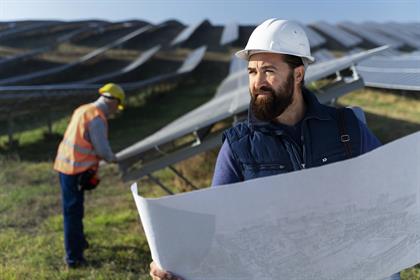
Summer camps are the most awaited time of the year for kids. With a wide variety of activities that cater to curiosity and build new memories and friendships. In these summer camps, kids continuously engage with various indoor and outdoor games curated for their development. However, with such a tight summer camp schedule, there are still times that arouse the question “What Do You Do At Summer Camp In Between Activities?”. In these time breaks kids can bond with peers, or discover what excites them. These are important moments of the camp that provide campers the opportunity for reflection, creativity, and self-discovery. It's during these quieter moments that lasting memories are made, and campers develop skills that extend beyond scheduled activities.
An Ordinary Day Camp
A typical day at summer camps comprises various activities according to the summer camp themes they are based on. Mornings begin with an energetic feeling calling campers to gather around and get started with energetic activities. Campers frequently spend the mid-morning learning new skills in instructional sessions, which are followed by a fun group lunch.
Team-building activities or exhilarating pursuits like mountaineering or ropes courses usually open an afternoon program. Snack breaks are cherished as brief pauses before the afternoon's activities. Once the evening sets, campers can take part in games, talent shows, or campfire gatherings with music and storytelling.
These camps conclude the day with gatherings and showers, which promote friendship and self-consciousness. Every day is planned to combine social interaction, education, and enjoyment to provide complete experiences for campers.
Unstructured Time At Camp
Campers' unstructured time between activities is important to their growth. It allows them to have scheduling flexibility, which encourages independence and creativity. Campers entertain themselves through impromptu games and activities during unstructured times, which fosters collaboration and social skills.
The unstructured time in summer camps promotes individual passions, improving self-awareness and self-assurance. It helps little campers learn important life skills including time management and decision-making. Through unstructured play, campers build resilience and learn to love nature.
Thus, having some unstructured time between camp activities is important for the complete growth of campers. With this free time, kids will grab the opportunity to analyze themselves and improve their personal growth. The learning gained in this time lives with them throughout their life period continuously shaping their life decisions.
What Do You Do At Summer Camp In Between Activities
Social interactions
During their free time in camp, campers explore their interest be it nature trails, play sports, or just sit and interact with peers. While some may get involved in creative activities, others may indulge in other summer camp activities like outdoor fun, STEM activities, or sports thrill. By getting involved in these activities kids improve their ability to interact socially, building a bonds through common experiences. The bonds made through these activities last longer even after the camp.
Games and sports
During free time, another fun thing to do is to get involved in the outdoor fun. Many action-loving kids choose to spend their free time between activities by exploring adventure activities like hiking and canoeing. These team activities help campers to come closer and bond through these activities. These moments captured from these explorations and creativity get etched in their heart forever.
Creative pursuits
At camp, children participate in a range of activities during their leisure time. Many of them choose artistic activities like writing and crafts. Some campers explore their artistic side by molding ceramics or painting landscapes. Some lose themselves in their imaginations when penning novels or poems. Campers work together on group projects or take part in skill-building seminars. These pursuits develop friendships and stimulate creativity. All in all, free time at camp is a chance for discovery, individual expression, and the excitement of taking a risk in a safe setting.
Rest and relaxation
Some choose to rest and unwind during camp's leisure hours, using the opportunity to refuel. They may read a book beneath a tree, or just relax by the lake. Additionally popular are nature excursions and craft classes. During downtime, campers may take up new hobbies, paint landscapes, or write in notebooks. Free time allows campers to explore and relax in equal measure, allowing them to fully experience the outdoors.
Relaxed Fishing
Another fun activity to do between activities is fishing. During this activity campers not only relax but also learn the techniques and basics of fishing. Fishing is an ideal activity in summertime, sitting by the lake gives them time to observe and explore the natural and wild world around them. During fishing campers also learn to be calm and patient through the process.
Benefits of Unstructured Time
- The unstructured time allows campers to break free from the staple and rigid schedule of the camp and explore something new. This time campers often explore their skills and interests that create a spark in them during the camp. They can explore, experiment, and innovate new ideas with any pre-defined notion.
- Exploring personal interests and hobbies is encouraged for campers during unstructured time. They may experiment, think back on what has happened to them, and figure out what speaks to them. For one to grow personally and gain confidence, this self-discovery process is crucial.
- Campers can plan their activities and schedules during unstructured time. As adolescents learn to prioritize their responsibilities and make decisions, this autonomy helps them develop a feeling of independence and accountability. These abilities are essential for success at camp and in the outside world.
- Campers can plan their schedules and activities during unstructured time. As kids learn to choose priorities and make decisions, this autonomy helps them develop a feeling of independence and accountability. These abilities are essential for success at camp as well as in the outside world.
- Campers may engage with peers more freely when they have unstructured time. They can establish impromptu connections, navigate group dynamics, and acquire critical social skills including empathy, communication, and dispute resolution.
Conclusion
Summer camps play a specific role in shaping children's personal growth. During this free time, in the tranquil moments between camp activities, children discover the essence of summer camp: a blend of exploration, creativity, and camaraderie. Campers get to explore their interests, learn to solve problems they are facing in the camp or explore any new interests they might not know about them. This freedom fosters creativity, independence, and social skills, enhancing their overall experience. These interludes offer invaluable opportunities for personal growth, fostering lasting memories and friendships that extend far beyond the campfire circle.
Leave a Reply
Related Products
You Might Like Also

Common Mistakes to Avoid During Roof Installation
Learn essential tips to avoid common mistakes during roof installation. Ensure durability and energy efficiency while protecting your home from damage! Read More

The Importance of Local SEO for Nonprofit Websites
Discover the importance of local SEO for nonprofit websites. Learn how optimizing for local search can increase visibility, attract supporters, and boost your impact. Read More

If you crave a cheese that melts in your mouth with a buttery richness, look no further than Ammerlander Havarti cheese. Read More

Make your child's birthday party unforgettable with these 8 entertaining ideas, from themed dance parties to DIY craft stations and more. Read More

The Pros & Cons of Solar-Powered HVAC Systems
With technology taking over the world an innovative way to combine comfort and sustainability is with solar-powered HVAC systems. Energy efficiency in HVAC systems becomes critical as concerns about climate change gain momentum worldwide. This article examines the benefits and drawbacks of solar-powered HVAC systems, analyzing how they affect environmental sustainability and energy usage. Read More

Considering investing in the thriving food app market? Explore Deliveroo's success & the key features your app needs. Learn about development costs to navigate this promising opportunity. Read More












